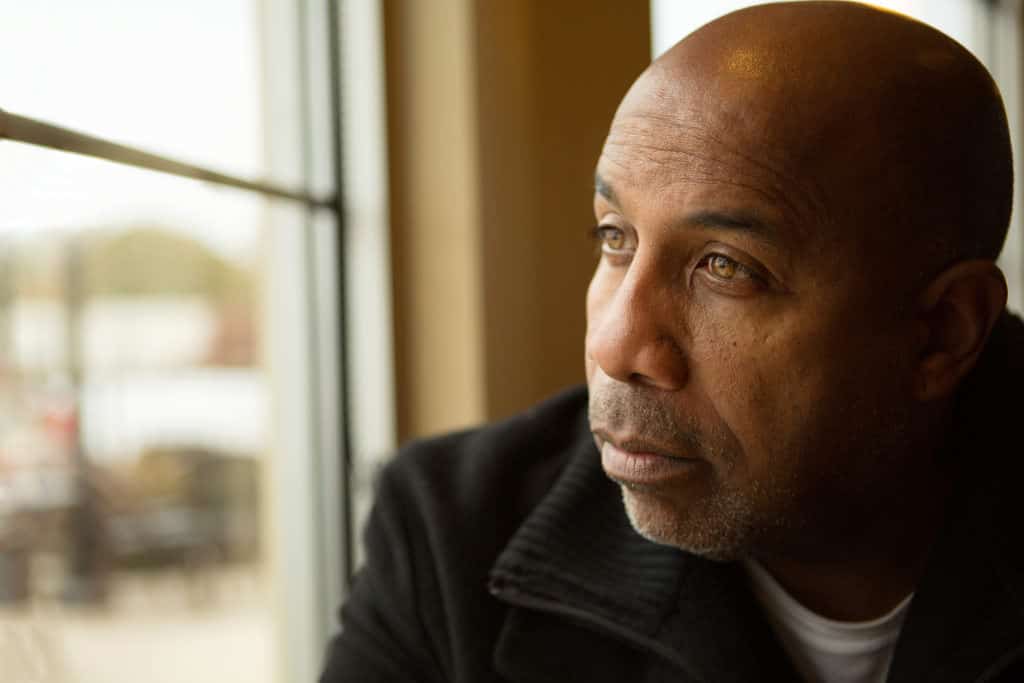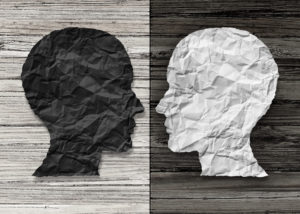Mental illness is extremely common: one in four people have some sort of mental disorder. These illnesses can range from depression to anxiety disorders to schizophrenia.
And while there’s no single cause to mental illness, there are certain risk factors that you can recognize in yourself and others. Understanding these risk factors can help get you or loved ones into treatment to deal with mental illness before it takes over your life.
Keep reading to learn 8 of the most common risk factors for mental illness, and what you can do to help yourself or others living with these situations.
1. Relatives with Mental Illness
Many mental illnesses have genetic factors. Some disorders with proven genetic links are:
- Clinical depression
- Anxiety
- ADHD
- Bipolar disorder
- Schizophrenia
It’s thought that certain genes or chromosomal changes can result in abnormal brain chemistry that can lead to these types of mental disorders. So while having a relative with a mental illness doesn’t guarantee that you will develop it as well, you definitely have a higher risk at developing a mental illness because of it.
Take note of your family history. Ask your relatives when they began to feel symptoms, when they were diagnosed, and how they’re treating it.
This will give you some insight if you begin to develop similar symptoms so you can get treatment as soon as you notice similar symptoms developing.
2. Traumatic Events
Certain mental disorders develop because of a traumatic event in someone’s life. One example is military members developing Post-Traumatic Stress Disorder (PTSD) after experiencing life in combat.
But it isn’t only soldiers that develop anxiety or other mental disorders after trauma. Trauma could be experienced in a number of ways, including:
- Domestic violence
- An assault
- Car accident
- Job loss
- Death of a loved one
- Sexual assault
- Divorce
As with the genetic factors, experiencing one of these events doesn’t automatically lead to mental illness. However, in some, these events can trigger the development of a disorder, which makes them risk factors.
To prevent that, try and get some help from a therapist or counselor if one of these things happens to you. This will help you deal with the tough emotions and repercussions in healthy and productive ways.
3. Substance Abuse
Substance abuse and mental illness are inexplicably linked. Evidence shows that substance abuse is a risk factor for a dual diagnosis with a mental disorder. Other evidence shows that mental illness is a risk factor for substance abuse.
If that sounds like a vicious cycle, that’s because it is. Many people used alcohol and drugs to deal with negative emotions and triggers caused by mental disorders, and many find they develop mental illness after becoming addicted to drugs and/or alcohol.
If you’re abusing drugs, seek rehab or drug treatment programs. These programs help you deal with your triggers and illness in healthy ways and help you get clean and sober.
4. Medical Conditions
Many patients with chronic conditions like chronic pain, cancer, neurodegenerative diseases, etc, are at risk of developing mental illness. The most common mental illness associated with chronic disease is depression.
If you or a loved one has been diagnosed with a chronic condition, physical health commonly takes priority. But don’t forget how hard it can be emotionally and mentally.
Make sure you or your loved one has someone to talk to, and don’t be afraid to look into medicinal treatments for mental disorders alongside medical treatment for their condition.
5. Childhood Trauma
Childhood is a formative time in terms of our brain development, which is why trauma during those years (even up to age 24) have such a huge impact on mental health. In fact, more kids have psychiatric disorders than cancer, diabetes, and HIV combined.
If you experienced any trauma as a child, it’s a good idea to speak with a mental health professional, or at least join a support group. If you know a child that experienced trauma, the best thing for them would be to see a child psychologist so they can deal with the trauma in a healthy way before it develops into a disorder.
6. Environmental Factors
Certain environmental factors have been linked to mental illness. For example, studies show that exposure to certain toxic metals has been linked to various mental disorders.
Other factors including fetal development, certain infections, poor nutrition, toxins, and other biological environmental factors can lead to mental illness as well.
7. Other Mental Illness
Research shows that many people have more than one mental illness, and that anxiety is one of the most common co-occurring mental disorders you can have.
So if you have already been diagnosed with mental illness, you’re at risk for a second diagnosis, and at especially high risk for an anxiety disorder. There isn’t a way to avoid this besides maintaining and getting treatment for your first mental disorder through therapy, medication, or other methods.
8. Brain Damage
Lastly, physical brain damage (often referred to as Traumatic Brain Injury, TBI). Any type of brain damage and/or TBI can lead to changes in how your brain functions, which has a huge impact on your mental health.
Studies show an undeniable link between brain damage and psychiatric disorders. Treatment for TBI usually involves physical therapy, surgery, medication, and therapy depending on the injury.
Do You Have Any Risk Factors for Mental Illness? Get Treatment Now
These are 8 of the most common risk factors for mental illness. Do you recognize any of them in yourself or your loved ones?
If you do, it’s best to get started with treatment, rehab, and/or therapy as soon as possible in order to prevent the development of a disorder or the worsening of one that’s already been diagnosed.
Check out the programs and services we offer to see if any would work for you. We can help treat addiction, mental illness, and dual diagnosis patients.
Don’t hesitate to reach out with any questions!
Author
-

President, CEO & Founder at Northbound Treatment Network
Paul Alexander is the CEO, President & Founder of Northbound Treatment Network in Newport Beach, California. He believes wholeheartedly in transformational leadership, organizational health and effective, fully integrated substance use disorder and mental health treatment. With over 27 years of experience in behavioral healthcare, Paul has extensive knowledge of “in vivo” treatment modalities, clinical development, operations, strategy, marketing and financial planning. He has been widely recognized for his development of collegiate-based residential treatment programs for students in recovery and authored a research study at The University of California confirming this modality’s effectiveness.
Paul’s comprehensive professional experience, willingness to innovate, and emphasis on organizational health are vital factors in Northbound’s continued success. Paul received his Certified Addiction Treatment Specialist training at Saddleback College in Mission Viejo, CA, and was awarded Outstanding Alumni Service Award in 2002. Paul holds a Bachelor of Arts degree in Criminology, Law and Society, Summa Cum Laude, from University of California, Irvine, and a Juris Doctorate degree from Loyola Law School of Los Angeles. Paul currently serves on The National Association of Addiction Treatment Providers (NAATP) board. In addition, he serves on The Family Recovery Foundation board and The CarePossible board in Orange County; both organizations are committed to raising funds for family recovery and treatment for former military personnel. Paul is in recovery himself and lives in Orange County with his wife Silvana and his two young sons, Noah and Dean.










